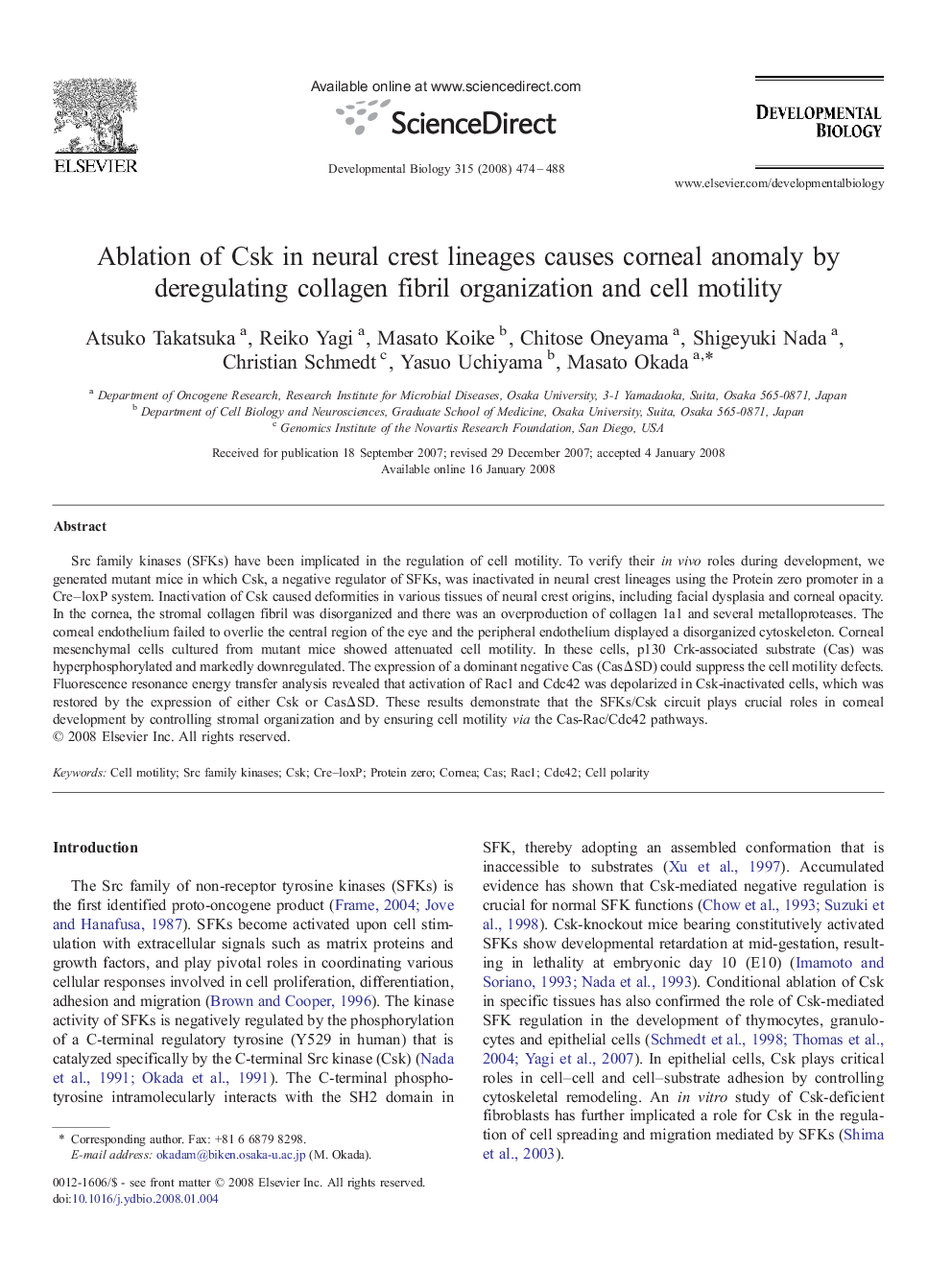| Article ID | Journal | Published Year | Pages | File Type |
|---|---|---|---|---|
| 2174526 | Developmental Biology | 2008 | 15 Pages |
Src family kinases (SFKs) have been implicated in the regulation of cell motility. To verify their in vivo roles during development, we generated mutant mice in which Csk, a negative regulator of SFKs, was inactivated in neural crest lineages using the Protein zero promoter in a Cre–loxP system. Inactivation of Csk caused deformities in various tissues of neural crest origins, including facial dysplasia and corneal opacity. In the cornea, the stromal collagen fibril was disorganized and there was an overproduction of collagen 1a1 and several metalloproteases. The corneal endothelium failed to overlie the central region of the eye and the peripheral endothelium displayed a disorganized cytoskeleton. Corneal mesenchymal cells cultured from mutant mice showed attenuated cell motility. In these cells, p130 Crk-associated substrate (Cas) was hyperphosphorylated and markedly downregulated. The expression of a dominant negative Cas (CasΔSD) could suppress the cell motility defects. Fluorescence resonance energy transfer analysis revealed that activation of Rac1 and Cdc42 was depolarized in Csk-inactivated cells, which was restored by the expression of either Csk or CasΔSD. These results demonstrate that the SFKs/Csk circuit plays crucial roles in corneal development by controlling stromal organization and by ensuring cell motility via the Cas-Rac/Cdc42 pathways.
